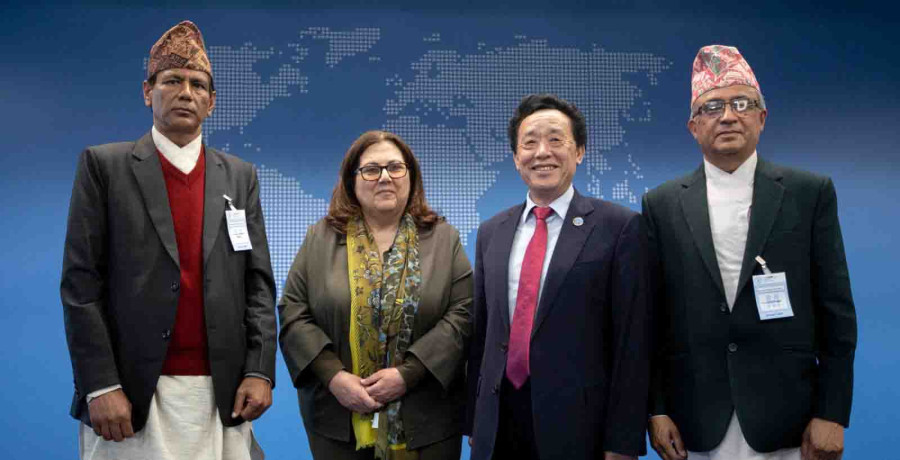Money
Nepal’s Agriculture Cooperative Central Federation wins FAO partnership award
The award recognises commitment to improving the lives of local communities and promoting sustainable development.
Post Report
Two institutions, one from Nepal and one from Lebanon, both firmly rooted in their rural communities, have won first and second place respectively under the new Food and Agriculture Organisation of the United Nations (FAO) Awards Programme.
The Agriculture Cooperative Central Federation Limited from Nepal and the Al-Shouf Cedar Society (ACS) from Lebanon, two partner institutions of FAO, stood out for their efforts to enhance the living standards of local communities, promote sustainable agrifood systems, protect biodiversity and combat the impacts of the climate crisis, the FAO said in a statement.
The FAO Awards Selection Committee conferred the two institutions with the FAO Partnership Award.
The committee stressed the importance of equally dividing the $10,000 cash prize between the two winners who were very close in scoring.
The prize-giving ceremony was held at FAO’s headquarters in Rome on the sidelines of the 172nd session of the FAO Council on April 24.
“Today we are here to acknowledge the success of individuals and institutions that recognise the benefits of collaboration and teamwork to achieve a sustainable food secure future for all,” said FAO Director-General Qu Dongyu in his opening remarks.
“Partnerships serve to find innovative ways to do things by pooling diverse capacities and increasing creativity, and by bringing new resources to reach those left behind” he added.
FAO and the Agriculture Cooperative Central Federation Limited in Nepal have been working together for more than a decade to strengthen agricultural systems management in the country.
With more than 1,139 agricultural cooperatives, the federation has provided smallholder farmers with access to markets, financial services, and training, enabling them to increase production, improve livelihoods, and contribute to the sustainability of agrifood systems in Nepal.
The first-place award recognises the institution's ability in communicating, through policy dialogues and participation in various forums, the complex agricultural and economic issues of smallholder farmers to policymakers and promote solutions to address hunger and malnutrition in the country. Accepting the award during the event was Khem Bahadur Pathak, chairperson of the Institution.




 9.7°C Kathmandu
9.7°C Kathmandu














